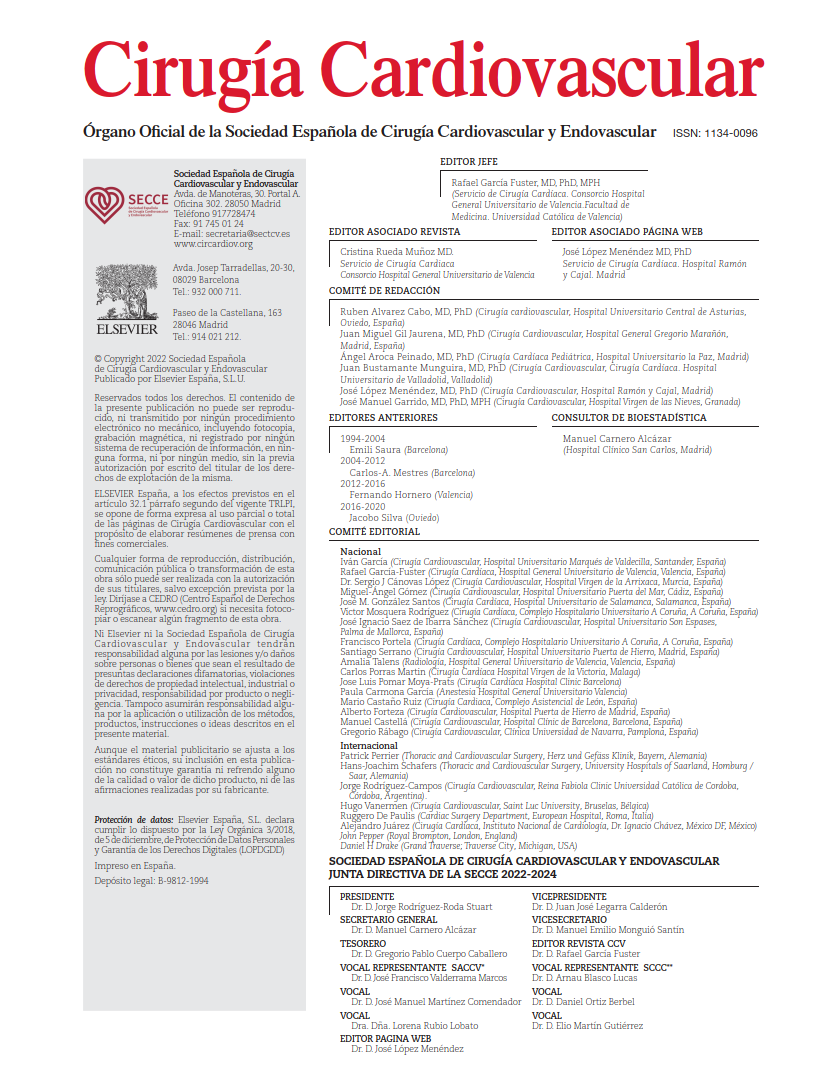
Balloon-Expandable Myval® Bioprosthesis Matches Contemporary Devices: A Surgeon’s Perspective
Randomized Clinical LANDMARK Non-Inferiority Trial Comparing the Meril Myval® Balloon-Expandable Prosthesis with Widely Used Contemporary Prostheses (Edwards SAPIEN® and Medtronic Evolut®) in Transcatheter Aortic Valve Implantation
PCI versus Surgery for Left Main Coronary Artery Disease According to Age: The Last Surgical Frontier at Risk?
A meta-analysis including 4 randomized controlled trials and 10 observational studies comparing percutaneous coronary intervention (PCI) and coronary artery bypass grafting (CABG) in left main coronary artery (LMCA) disease according to patient age.
Patent ductus arteriosus in very-low-birth-weight preterm infants: is there a place for early surgery?
This retrospective study evaluates the outcomes of surgical closure of haemodynamically significant patent ductus arteriosus (hsPDA) in very-low-birth-weight preterm neonates.
Biological Aortic Valve Replacement in Young Patients with Bicuspid Aortic Valve: Is It Still a Viable Option?
This article analyzes outcomes from 498 patients under the age of 65 with bicuspid aortic valve (BAV) undergoing aortic valve replacement (AVR) with bioprostheses due to aortic stenosis (AS).
Mitral valve replacement: mechanical versus biological: long-term experience
Long-term follow-up after mitral valve replacement focusing on the impact of biological versus mechanical prostheses on survival and reoperation rates in over 2,000 patients, adjusted using propensity score matching.
Bicuspid Aortic Valve Repair: Importance of Annular and Sinotubular Junction Stabilization
A retrospective, multicenter analysis of outcomes in valve repair for aortic insufficiency caused by bicuspid valvulopathy with or without associated aortopathy, with a follow-up period of 10 years.
Mitral valve replacement: is age a key factor in prosthesis selection?
This is a retrospective, multicenter observational study comparing long-term outcomes in terms of 10-year survival and freedom from reintervention following isolated mitral valve replacement with mechanical versus bioprosthetic valves, across different age groups.
Time to take care of the cardiac surgeon, ergonomics in the operating room
National survey on musculoskeletal injuries among cardiothoracic surgeons in the United States.

